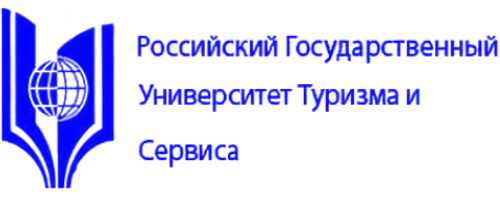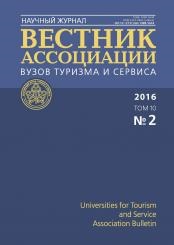The article states the need of foresight of the further Service industry development in order to prepare more qualified specialists at such actual graduate studies as «Service» and «Tourism». Today educational process at these disciplines demands creative approach, which involves Professor and Student collaboration in innovative ideas production. The author of the article states that foresight of the Service industry trends allows pay attention to actual problems at the lectures and practical classes, it gives an opportunity to redistribute the instructional time, destined to theo- retical or practical work, to make the sessions more valuable, full of case – studies. The conclusion of the article is the statement that foresight is very helpful for the student auditory in a different ways – as a raised problem, as a special task, as a form of a lesson, as a method of the research. The main foresight advantage is its ability to activate creative potential of the students. The students begin to study more diligent, they try to find new and original solutions of their professional tasks. They demand innovative thinking because it increases above exist- ing algorithms, samples and models. It comes to the new progressive results. Innovative thinking development is following by the innovative behavior development and growth of the commercialization and promotion skills. The creativity of future experts is the quality, which provides their life achievements.
service innovations, «Internet of the things», independent tourism, medical tourism, event tourism, adventure tourism, thematic parks, practicable education
1. Vapniarskaia O.I., Kharitonova T V., Krivosheeva T.M. Tendentsii v praktike menedjmenta turistskoj destinatsii [The trends in the practice of tourist destination management] // Vestnik Assotsiatsii vuzov turizma i servisa [Universities for Tourism and Service Association Bulletin]. Moscow: Publ. UTS, 2015. № 1. P. 21-28.
2. Gerasimova V.J. Otnoshenie k starosti cherez prizmu otnoshenia k smerti [Attitude to senility through attitude to death]// Vestnik Moskovskogo universiteta. Seria 18. Sociologia i politologia. [Bulletin of MSU. Series 18. Sociology and political science]. Moscow: Publ. MSU, 2015. № 2. P. 226-249.
3. Abdrakhmanova G.I., Gokhberg L.M., Kovaleva G.G. Informacionnoie obshestvo: vostrebovannost informacionno- kommunikacionnykh tekhnologii naseleniem Rosii [IT National Research Institute «High school of Economy» - society: use IT - technologies by Russia population]. Natsionalnyi Issledovatelskii Universitet «Vysshaia shkola Ekonomiki». [National Research Institute «High school of Economy»]. Moscow: Publ. HSE, 2015. 120 p.
4. Chernysheva T.L. Sobytiinyi turizm [Event-tourism] //Vidy i tendentsii razvitia turizma: uchebn. posobie. [Types and tendencies of tourism development: ed. book]. Novosibirsk: Publ. NSTU, 2014. P. 145-168.
5. Lapochkina V.V. Kluchevyie aspekty stanovlenia i perspektivy razvitia tematicheskogo literaturnogo turizma: otechestvenny i zarubezhnyi opyt [Key aspects of formation and development of thematic literary tourism] //Vestnik Assotsiatsii vuzov turizma i servisa [Universities for Tourism and Service Association Bulletin]. Moscow: Publ. UTS, 2015. № 2. P. 66-76.
6. Nedkova A.S. Primenenie informatsionnykh uslug v turisticheskom biznese [Application of information service in tourist business] // Vestnik Assotsiatsii vuzov turizma i servisa [Universities for Tourism and Service Association Bulletin]. Moscow: Publ. UTS, 2014. № 3. P. 21-27.
7. Sakharchuk E.S. Uchet globalizatsionnykh protsessov kak printsip sravnitelnogo pedagogicheskogo analiza modelei obrazovania v sfere turizma [Accounting of globalization processes as a principle of comparative pedagogical analysis of education models in tourism sphere] // Vestnik Assotsiatsii vuzov turizma i servisa [Universities for Tourism and Service Association Bulletin]. Moscow: Publ. UTS, 2015. № 1. P. 77-85.





